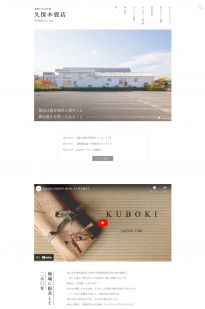Kuboki Tatami-ya 2023

Abstract
Kuboki Tatami, a traditional Japanese family business, came into existence during the Edo Period in the year 1740. Kuboki Tatami is based in Sukagawa city of Fukushima prefecture in Tohoku region of Japan. A Tatami is a type of mat used as a flooring material in traditional Japanese-style rooms. It has survived the test of time for the last 240 years. Now in 21st century Japan, the business faces an existential challenge. The changing consumer behavior has resulted in Tatami industry shrinking by 80% in last 20 years. Aging Japanese society faces a shortage of skilled manpower to continue this craftsman centric business. Fumio Kuboki,the 16th generation heir of Kuboki Tatami joined his family business in 2019. His decision to enter the business was very dramatic. Fumio graduated as an IT engineer from the prestigious Keio University in Tokyo and has been working in a multi-national construction company since 2014. In June 2019, during one of his regular visits to his home in Sukagawa, he received a letter from his father Tetsuro Kuboki. In the letter Tetsuro san had explained the various challenges that the business is facing since the last few years, and he is thinking of shutting down the business.His father had asked for Fumio’s opinion about the future of Tatami business. After reading the letter, Fumio thought that if industry continues to decline at this rate, then one day Tatami will disappear from Japanese culture. And, if Tatami disappears then other aspects of Japanese culture like the tea ceremony, flower arrangement, and judo which are all developed on tatami mats will be adversely affected. Fumio thought that as a son of Tatami maker, it is his mission to leave Tatami for the future generations and dreamt of taking it to the world. The case explores the Business transformation that Fumio makes by using his ambidextrous leadership style,“Experiential Marketing” strategy and strength of weak ties.
Detailed information
| Case ID | 23-1184 |
|---|---|
| Published | 2023 |
| Industry | OTHERS |
| Analyzed Area | General management |
| Pages | 26 |
| Language | English |
| Teaching Note | Attached |

 Brochure
Brochure
 Info Session
Info Session
 Application
Application
 Alumni Voices
Alumni Voices





